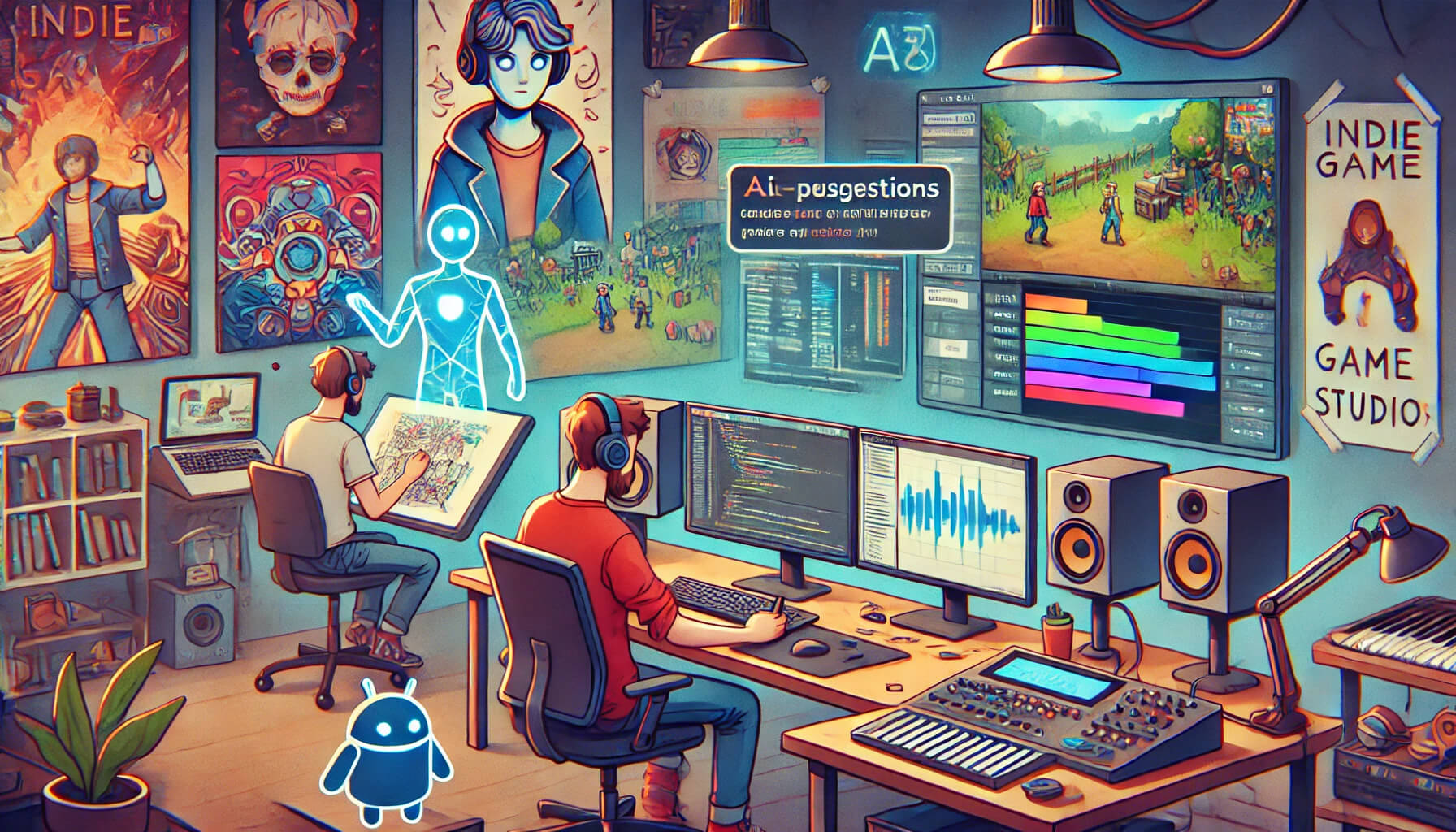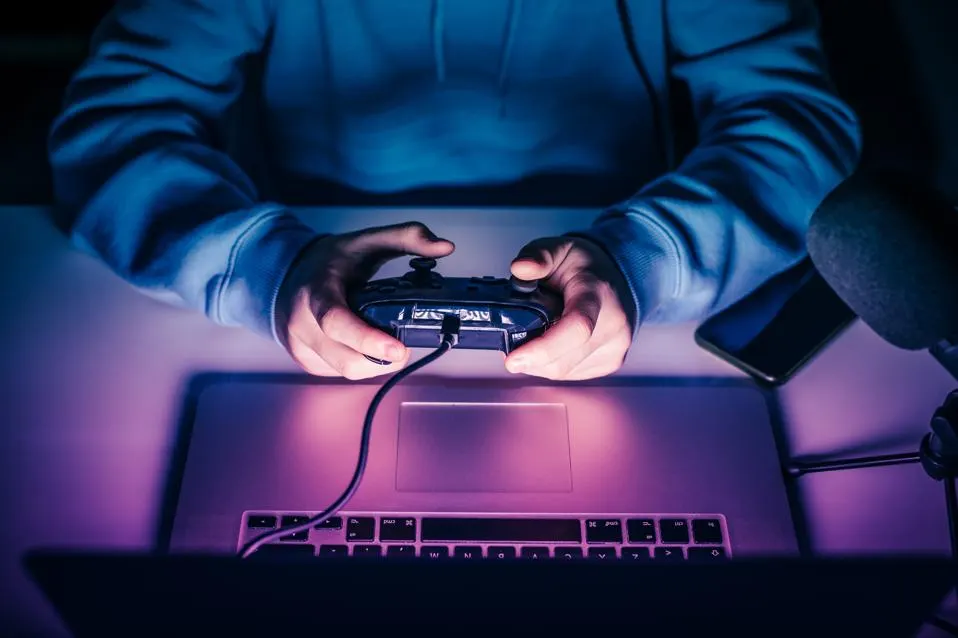Indie game development has always been a haven for creativity, experimentation, and risk-taking showing unusual ideas of independent small game studios. Small teams or even solo game developers often bring unique game ideas to life without the backing of big studios. However, this creative freedom comes with significant challenges. Limited resources, budget constraints, and tight timelines often make it difficult for indie game developers to produce games that stand up to AAA titles in terms of quality, complexity, or lack the final polish. This is where AI could play a crucial role, but opinions on the subject remain mixed – are AI tools really COULD help an Indie Studio? Let’s think about different approaches of AI in indie game dev to find it out.
In this article, we will explore how AI could help indie game developers across various aspects of game development, from graphics and music to dialogue and localization. While AI offers undeniable benefits, we will also consider potential concerns and downsides to give a well-rounded view of its role in the indie game development scene.
AI in indie game dev graphics creation: a time-saving tool?
One of the most labor-intensive tasks for indie developers is creating high-quality graphics. Whether it’s character design, environments, or animations – pixel, 2d or 3d graphics, creating polished visuals requires a combination of talent, time, and tools. Usually an indie game dev has some abilities when it comes to graphics and knows Illustrator, Photoshop or Canva and Gimp, however, it could take forever to create all the visuals to make the game seem finished. AI-based tools, like image generators, can assist developers by automating or streamlining certain aspects of this process.
Positives – not crucial graphics can be made this way to save some time
Accelerated Production: AI tools can generate 2D or 3D assets quickly. For example, developers can use AI to create textures, backgrounds, or even entire level designs based on prompts. This significantly reduces the time spent on manual design, allowing teams to focus on refining gameplay and narrative.
Access to Advanced Techniques: Indie developers without access to large art teams can use AI to simulate effects like realistic lighting, shadowing, or physics-based rendering. AI-powered image upscalers can also enhance low-res art assets, bringing an indie game’s visuals closer to AAA quality.
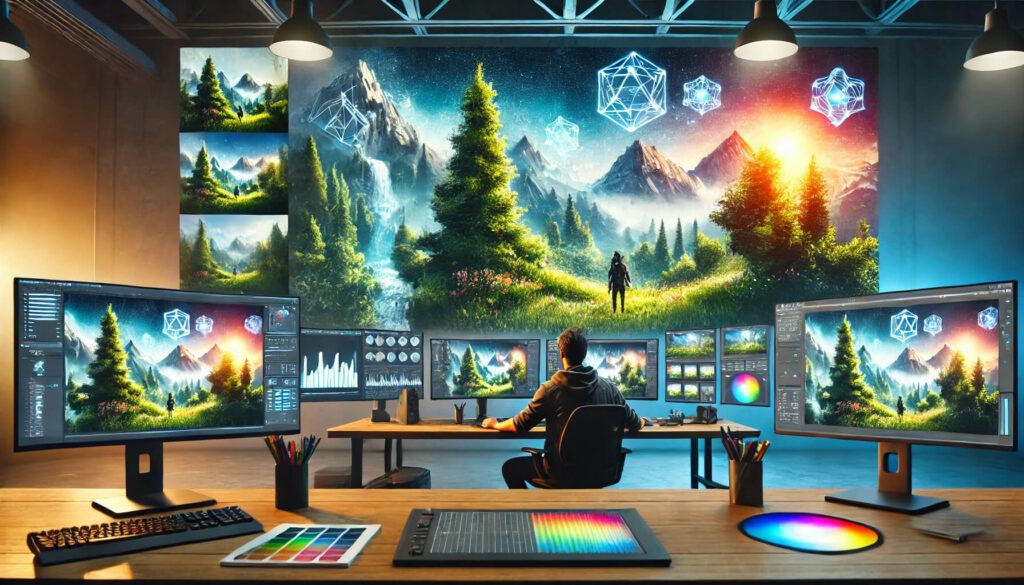
Negatives – no character and ethical reasons
Loss of Artistic Control: Critics might argue that relying on AI for asset generation could dilute the personal touch and uniqueness that often defines indie games. Since indie developers tend to create highly original art styles, some fear AI-generated content might lead to homogenization.
Ethical Concerns: The use of AI in art also raises ethical questions. Some AI image generators are trained on datasets that include copyrighted material, sparking concerns over intellectual property theft and unfair competition with human artists.
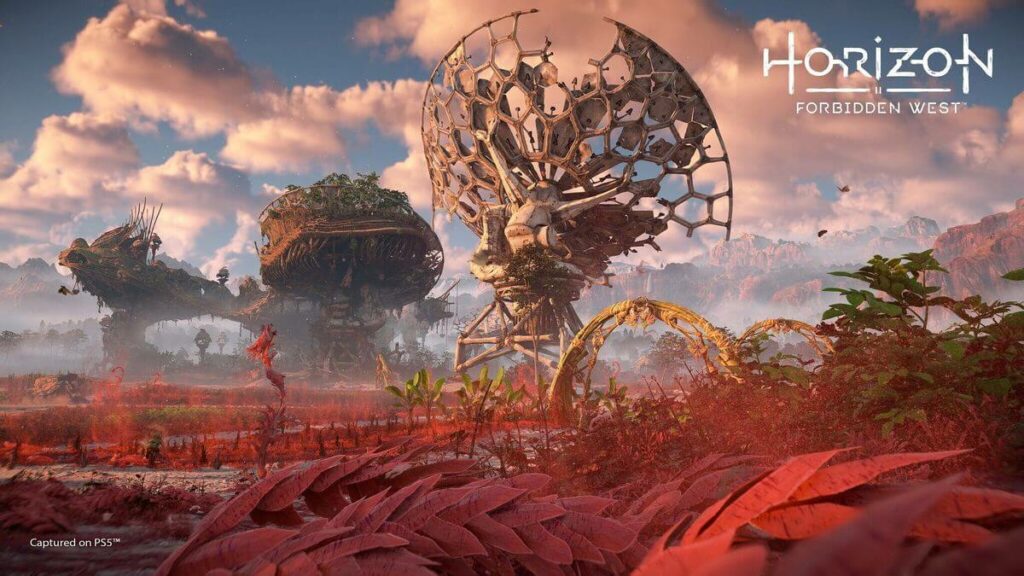
AI-generated music: harmonizing the experience
Music plays a crucial role in creating the atmosphere of a game. Indie game developers often face the challenge of either producing their own music, paying for custom soundtracks or searching for royalty free music which can be used anywhere in commercial projects. AI-powered music generators like Amper Music, Suno and AIVA can compose original scores, tailored to fit the mood and tone of the game.
Positives – more character and suitable soundtracks
Cost-Effective Solutions: Commissioning professional music can be expensive, especially for developers on a shoestring budget. AI can generate high-quality, royalty-free music at a fraction of the cost, giving developers the flexibility to have unique soundtracks without breaking the bank.
Customizable Soundtracks: AI music generators allow for flexibility in composition. Indie developers can adjust the tempo, mood, and instruments, and the AI will adapt the music accordingly. This dynamic generation could also extend to adaptive soundtracks, where the music changes in real-time based on player actions.
Negatives – not so many
Lack of Emotional Depth: One potential downside is that AI-generated music might lack the emotional depth and nuance of a human-composed score. Critics worry that these soundtracks, though technically impressive, might feel cold or generic.
Job Displacement Concerns: Just as in the graphics realm, some composers might feel threatened by the rise of AI tools in music production, fearing that AI could take away work from talented human creators.
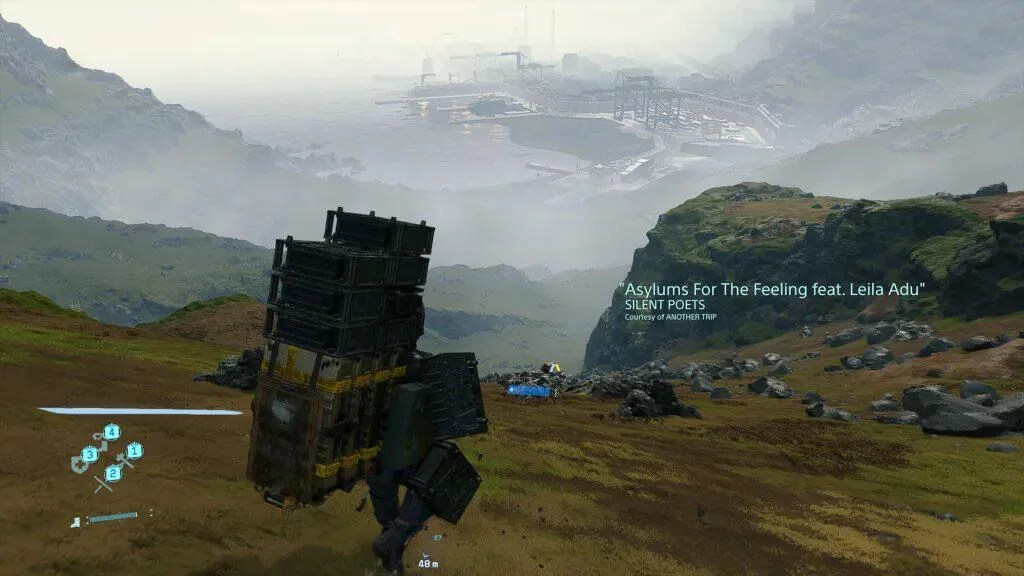
AI for content and dialogue creation: enhancing or diluting narrative?
Storytelling is at the heart of many indie games. Whether through rich dialogue, complex character arcs, or branching narratives, the written content of a game requires time and care. AI models, such as GPT-4 or other natural language processors, offer tools that can assist with generating dialogue, creating characters, or even developing complex branching paths in a story.
Positive reactions:
Automating Repetitive Tasks: Writing dialogue for every NPC in a large game can be monotonous. AI can automate this process by generating plausible, varied dialogue lines for background characters or side quests. Developers can then tweak and polish these AI-generated lines to fit the game’s tone.
Enhanced Story Complexity: AI can help indie developers create more dynamic, branching narratives by suggesting dialogue options or plot developments that the developer might not have considered. With AI-generated dialogue trees, smaller teams can implement more expansive storytelling experiences without needing a full writing team.
Negative Reactions:
Risk of Generic Dialogue: AI-generated dialogue may come across as flat or uninspired if not carefully monitored. Indie games often stand out for their quirky, unique voices, and there is concern that over-reliance on AI might result in generic or predictable writing.
Erosion of Human Creativity: Some argue that using AI to create dialogue or narrative content might stifle creativity. The concern is that developers may become dependent on AI to do the “thinking” for them, leading to a decline in the originality and authenticity that indie games are known for.
AI for localization: breaking language barriers and reaching a wider audience
For indie developers aiming to release games to a global audience, localization can be a massive hurdle. Translating a game’s text, dialogue, and even cultural references into multiple languages is a costly and time-consuming process. AI-powered translation tools, like DeepL and Google Translate, can help make this process more accessible.
Positive Reactions:
Cost and Time Efficiency: AI translation tools allow indie developers to localize their games without needing to hire professional translators for every language. AI tools can rapidly translate large volumes of text, cutting down localization time from weeks to days.
Broadening Market Reach: With AI-powered localization, indie developers can make their games available in multiple languages, expanding their market reach. This democratization of localization can lead to wider success for indie games that would otherwise remain niche.
Negative Reactions:
Quality Concerns: Machine translations are not perfect, and AI often struggles with nuance, cultural references, or context-specific phrases. Poorly translated games can alienate international audiences and damage a game’s reputation.
Human Touch Missing: Professional human translators understand context, humor, and cultural differences. AI translations may lack the subtle adjustments that human translators make to ensure that a game’s narrative and tone are preserved in another language.
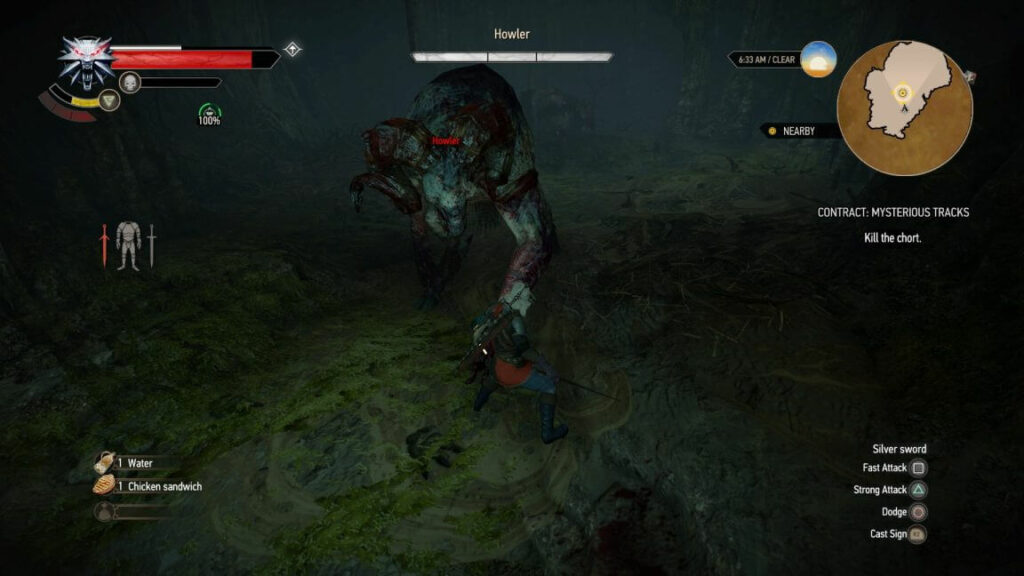
AI in testing and QA: detecting bugs faster
Testing a game for bugs, glitches, or balancing issues is another resource-intensive task, especially for small indie teams. AI-powered tools can assist with automated testing, running countless scenarios and detecting issues faster than manual playthroughs.
Positive Reactions:
Increased Efficiency: AI can test games faster and more thoroughly than human testers. It can identify patterns or bugs that might not be apparent through traditional testing methods, leading to more polished final products.
Smaller Teams, More Reliable Results: For indie developers, hiring a dedicated QA team might not be feasible. AI testing tools allow small teams to catch a wider range of issues, from performance glitches to design inconsistencies, without having to rely solely on human testers.
Negative Reactions:
Overreliance on AI: While AI can be incredibly useful in finding bugs, it may not always understand context or gameplay experience. Human testers are still needed to evaluate how the game feels to play—something that is difficult for AI to assess.
Cost of AI Tools: High-quality AI testing tools are not always affordable for indie developers, leading to a trade-off between investing in AI or relying on traditional, less automated methods.
Conclusion: A Balanced Path Forward
AI undeniably offers a wide range of benefits to indie game developers, from automating repetitive tasks and reducing costs to enhancing game complexity and reaching new markets. However, it’s important to strike a balance. Indie games thrive on creativity, uniqueness, and the personal touch of their creators. Over-reliance on AI might risk diluting these qualities, leading to more generic or formulaic games.
To navigate this evolving landscape, indie developers should view AI as a tool that supplements human creativity, not replaces it. Used wisely, AI can help developers push the boundaries of what is possible while maintaining the spirit and heart that make indie games special.
Ultimately, the goal is to ensure that AI empowers indie developers to bring their visions to life, rather than becoming a crutch that leads to a loss of artistic identity. By striking this balance, AI can be a transformative force in indie game development without compromising the soul of independent creation.


